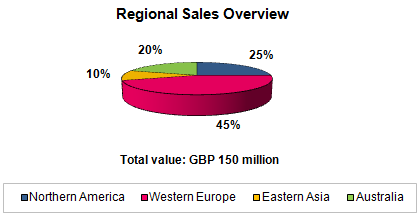Maths for Numerical Reasoning Tests
Many people would agree that only a person with high intellectual ability can achieve respectable score in numerical reasoning test. Good news is that everyone can do well in such assessments providing that they are committed to learning and acquiring essential knowledge and skills. If you have ambition to gain good score you must be competent at key elements of such tests which include basic maths, metal arithmetic and problem solving. In the below text we will focus on first element of these assessments and provide you with short advice about mathematical operations that must become your second nature to perform well in such examinations.
Percentages in numerical test
The key arithmetical operations that form the core of numerical reasoning are referred to as percentages. Many of the questions in such assessments will require you to apply concept of percents into wide range of situations. You must know how to calculate percents of quantities, proportional changes or how to find a number as a percentage of another. If you struggle with any of these arithmetic and algebraic functions see our percentage test guide which discusses various issues on such topics. Remember, it is important to master such maths concepts as they form bases of many online examinations. It may be difficult to give you practical example of each of the above but to demonstrate how these may be incorporated into an assessment consider the figure and question below.
 |
If Australian sales were excluded from the regional sales review, approximately what percentage of the revised total would Western European sales represent?
To tackle the above problem you need to understand how to calculate percents.
- First you need to calculate the numerical value of Australia’s sales: 20% of £150m = £30m
- The revised total excluding Australia therefore is £120m
- Western Europe’s sales remain at 45% of £150m = £67.5m
- So Western Europe as a percentage of revised total = [67.5/120 * 100] = 56.25%, or 56.3% to one decimal place.
If you find the above example difficult then practice such problems as in real exams you need to readily manipulate percentages. You can complete our free numerical reasoning test to start with which includes similar questions you may encounter in quantitative exercise and then you can undertake more practice from our aptitude pack.
Ratios and proportions
Ratios and proportions form part of many numerical reasoning assessments administered by major graduate employers. A ratio refers to a comparison of one number to another whereas proportion is an equation stating that two ratios are equivalent. In your tests you will almost certainly bump into the questions that will require you to work with such terms. Hence, it is important that you appreciate this concept thoroughly and that you understand the relationship between ratios, percentages and decimals and know how to convert one quantity into another. If you are unsure how to calculate these then refer to ratios and proportions practice guide where you can find the most comprehensive advice for such questions ranging from simple to advanced challenges. Remember, to be well prepared for employment tests you need to know how to work with such maths concepts in the blink of an eye.
Fractions in numerical reasoning
Often online numerical tests include wide range of fractions. In mathematical terms a fraction is a proportion of certain quantities. For example, if pie is divided into five pieces and you own three, denominator tells you the total number of the pieces whereas numerator tells the number of pieces you have. There are three basic types of fractions such as proper fractions, improper fractions and mixed numbers. You need to gain understanding of all of these to be comfortable with your maths calculations in quantitative reasoning. For more, examine the following section on fractions in aptitude tests to gain greater appreciation of these in scope of psychometric testing.

